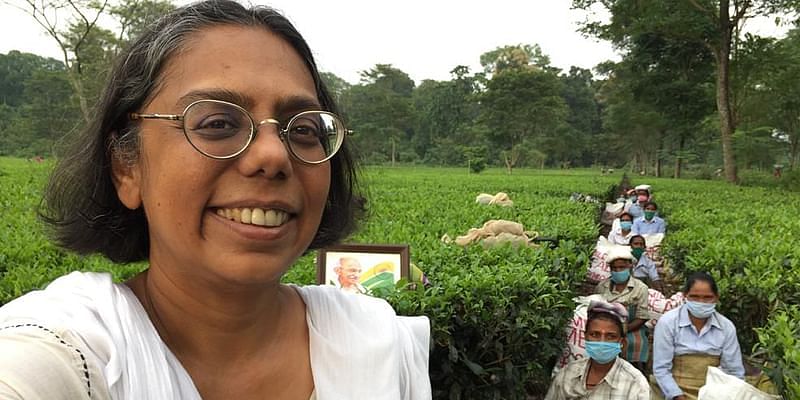
How a WhatsApp message laid the foundation for Ruchira Gupta’s 1MillionMeals campaign
By Rekha Balakrishnan|21st Mar 2021
This is the story of how one WhatsApp message became the impetus for a movement. 1MillionMeals — an initiative of Apne Aap Women Worldwide — has now become a metaphor for millions of meals distributed to marginalised families ever since the first lockdown was announced in March last year.
Three days after the nationwide lockdown was announced in March 2020 following the onset of the COVID-19 pandemic, Ruchira Gupta, Founder of Apne Aap, received a distress message on WhatsApp from a 12-year-old girl living in a red-light area in Delhi.
“Didi kuch kijiye, hum log bhooke hai, humhe khaana nahin mil raha hai.” (Sister, do something, we don’t have any food, and are starving).
The girl was the daughter of a sex worker who was sent home from boarding school due to the lockdown. She was one of the many children sponsored by Apne Aap — an organisation that helps victims of sex trafficking and children in many parts of India.

“It’s Like a War Zone”: Anti-Trafficking Organizations Struggle Under COVID-19
Corinne Redfern|Published 30th July 2020
It’s the early, pinkish hours of the morning, and Ruchira Gupta is already on the phone to a local farmer in Uttar Pradesh, India, working to persuade him to give her whatever potatoes and onions he can spare. Next on Gupta’s list is a rice dealer, followed by a spice merchant. Her tone is urgent and pleading. If they won’t donate for free, maybe they could discount the price?
Gupta can’t stop making the calls. If she did, she fears thousands of women and children living in India’s red light districts would likely starve. Government restrictions, imposed in March to curb the spread of the novel coronavirus, have stripped those working in India’s sex trade of their income. The nature of the industry—and the trafficking pipeline that feeds it—mean that few women, if any, have the necessary documentation to claim government hand-outs and much needed financial aid
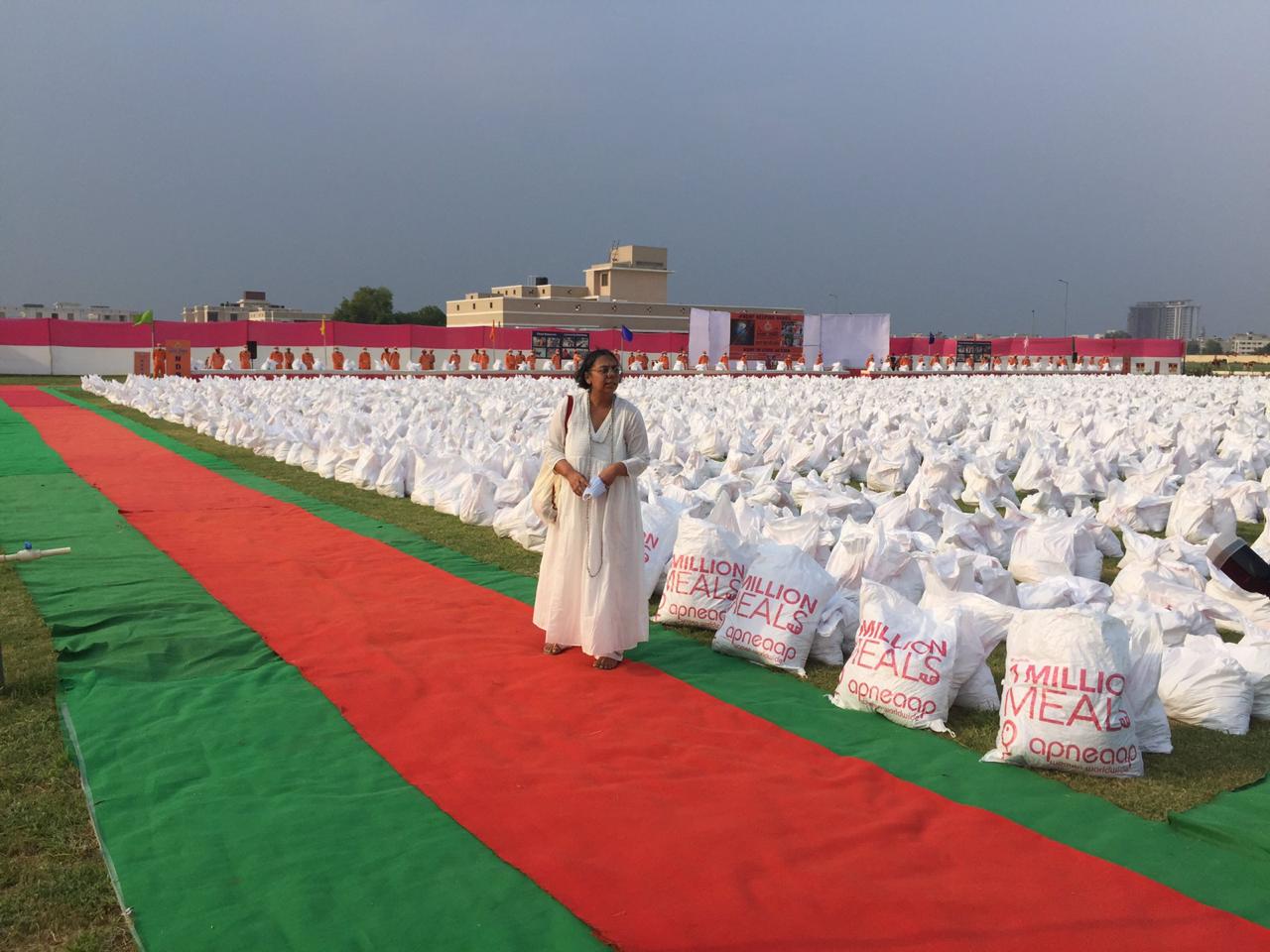
Meet the woman providing millions of meals to sex workers and their families amid coronavirus
Rekha Balakrishnan | Published: July 10 , 2020
Three days after a nationwide lockdown was announced in March to stem the spread of COVID-19, Ruchira Gupta, Founder of Apne Aap Women Worldwide, received a distress call from a 12-year-old living in a red-light area in Delhi.
“Didi kucch kijiye, hum log bhooke hai, humhe khaana nahin mil raha hai (Sister, do something, we don’t have any food and are starving).”
The girl was the daughter of a sex worker who had been sent home from boarding school due to the lockdown. She was one of the many children sponsored by Apne Aap, an organisation that helps victims of sex trafficking and children in many parts of India.
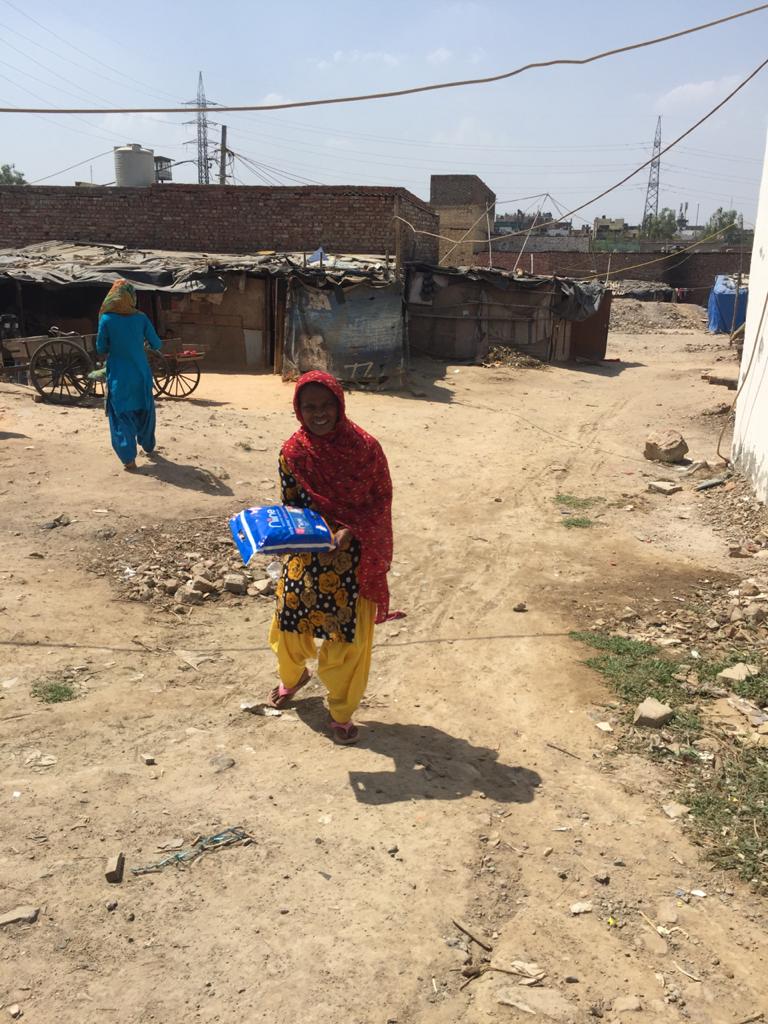
Men, Women Help Alike To Deliver Sanitary Pads During Lockdown
Editor’s Note: This article is a part of #Periodपाठ, a campaign by Youth Ki Awaaz in collaboration with WSSCC, to highlight the need for better menstrual hygiene management among menstruating persons in India. Join the conversation to take action and demand change! The views expressed in this article are the author’s and are not necessarily the views of the partners.
“There were no toilets. I did not have an extra piece of cloth. Periods were an absolute nightmare,”described a migrant worker when asked about the long journey she trod on foot.
We cannot possibly comprehend the enormity of her ordeal. But still, a little thought about the same makes us ponder. Thus, we at Apne Aap organisation decided to help these women from marginalised communities during their periods amidst this pandemic.

‘They are starving’: women in India’s sex industry struggle for survival
Exclusion from government Covid-19 relief has left many reliant on private food donations, as fears raised over protection from transmission after lockdown
Rasheeda Bibi has five rupees to her name. A worker in India’s sex industry, she lives in the narrow lanes of Kolkata’s Kalighat red light area with her three children in a room she rents for 620 rupees (£6) a month.
As a thunderstorm rages through the city, Bibi worries about the leaky roof of her small room.
It is now a month since India went into total lockdown on 26 March to contain the spread of Covid-19. With no clients, Bibi’s savings have dwindled. She has no money left for food, or sanitary towels for herself and her daughters, let alone for fixing the roof.
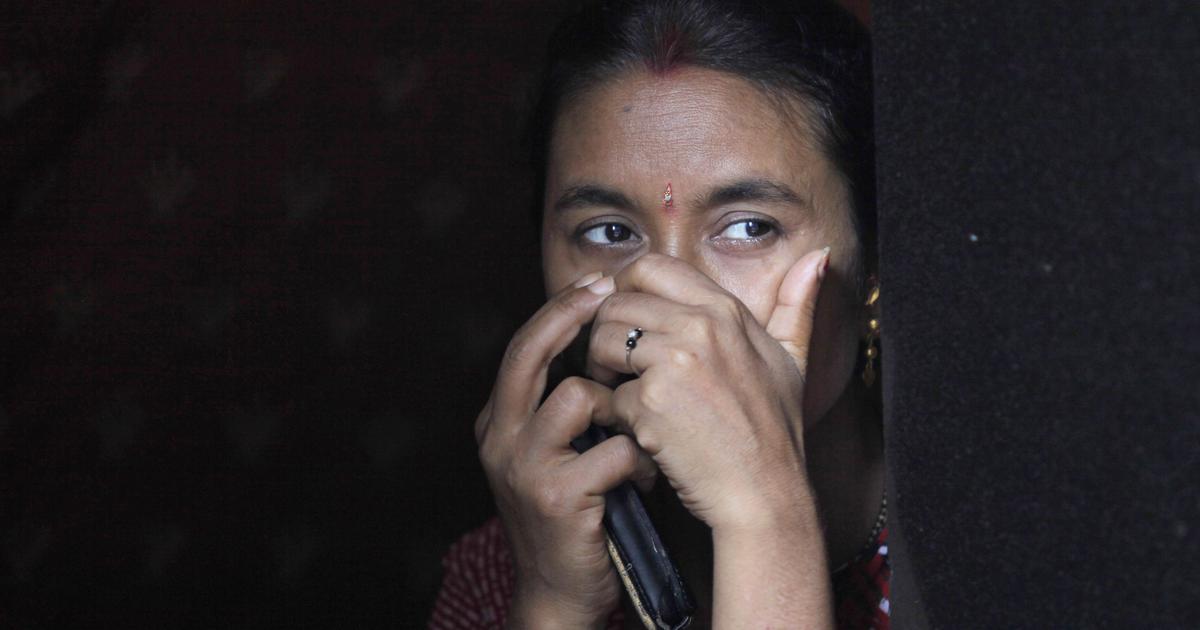
‘With HIV, we had protection. What to do now?’
Covid lockdown takes toll on India’s red light areas
Work has stopped for Seema after the lockdown began. She lives in the red light area in Delhi’s Najafgarh and belongs to the Perna community, which has seen generations of women pushed into the sex trade. Money is drying up and she has four children to feed.
“We buy a kilo of atta [wheat flour] for Rs 20 and most of it goes in feeding the children,” Seema said. Vegetables are scarce. If they are lucky, a chilli or a tomato may be eaten with the rotis. For the four adults in the house, there is little to go around.
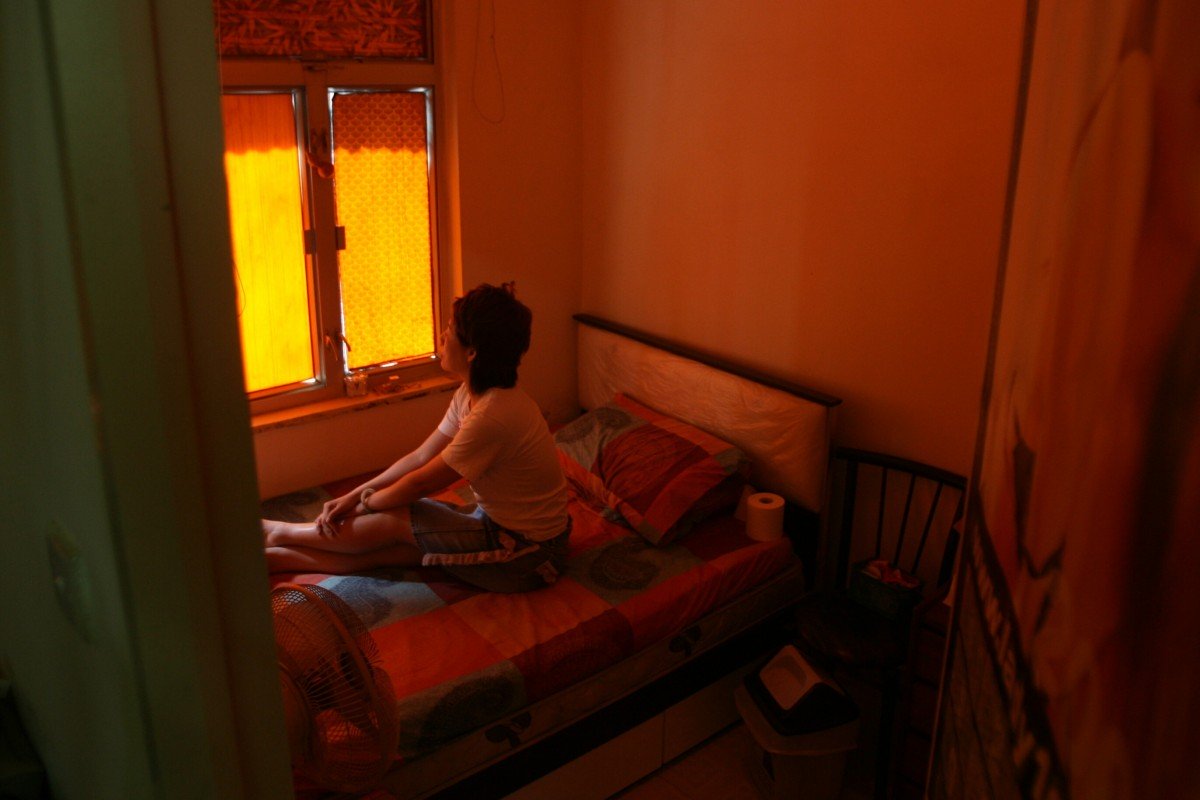
Coronavirus: ‘I don’t want to infect my children,’ says Hong Kong sex worker
Raquel Carvalho | Published:18 Apr, 2020
Cici, a mother of two young girls, has been a sex worker in Hong Kong for about four years. But she is now struggling to make ends meet in one of the most expensive cities in the world.
“I never experienced such poor business,” says Cici, who is in her 30s.
Since January when the first case of the novel coronavirus was discovered in Hong Kong, residents have embraced social distancing, with many staying in their homes and rarely venturing out. That has led to a dramatic drop in Cici’s daily wages.

"সবাই বাঁচলে আমি বাঁচব, মন্ত্র মুমতাজের"
No livelihood, no home to go to and little chance of social distancing have left around 10,000 residents of Sonagachhi, Rambagan, Jorabagan, Bowbazar and adjoining areas staring at starvation.
With 472 million children, India has the largest child population in the world and campaigners say the lockdown has impacted around 40 million children from poor families.
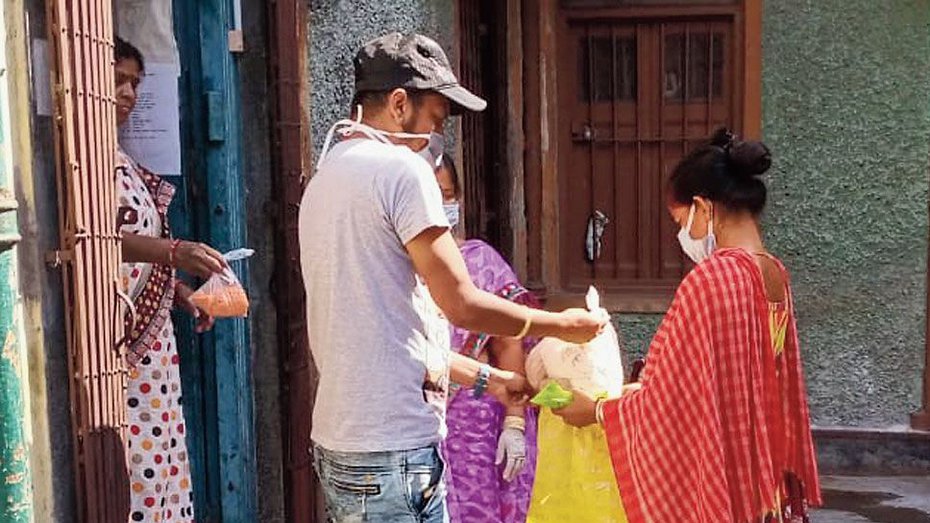
Ration for the distressed in red-light zones of Calcutta
No livelihood, no home to go to and little chance of social distancing have left around 10,000 residents of Sonagachhi, Rambagan, Jorabagan, Bowbazar and adjoining areas staring at starvation.
With 472 million children, India has the largest child population in the world and campaigners say the lockdown has impacted around 40 million children from poor families.